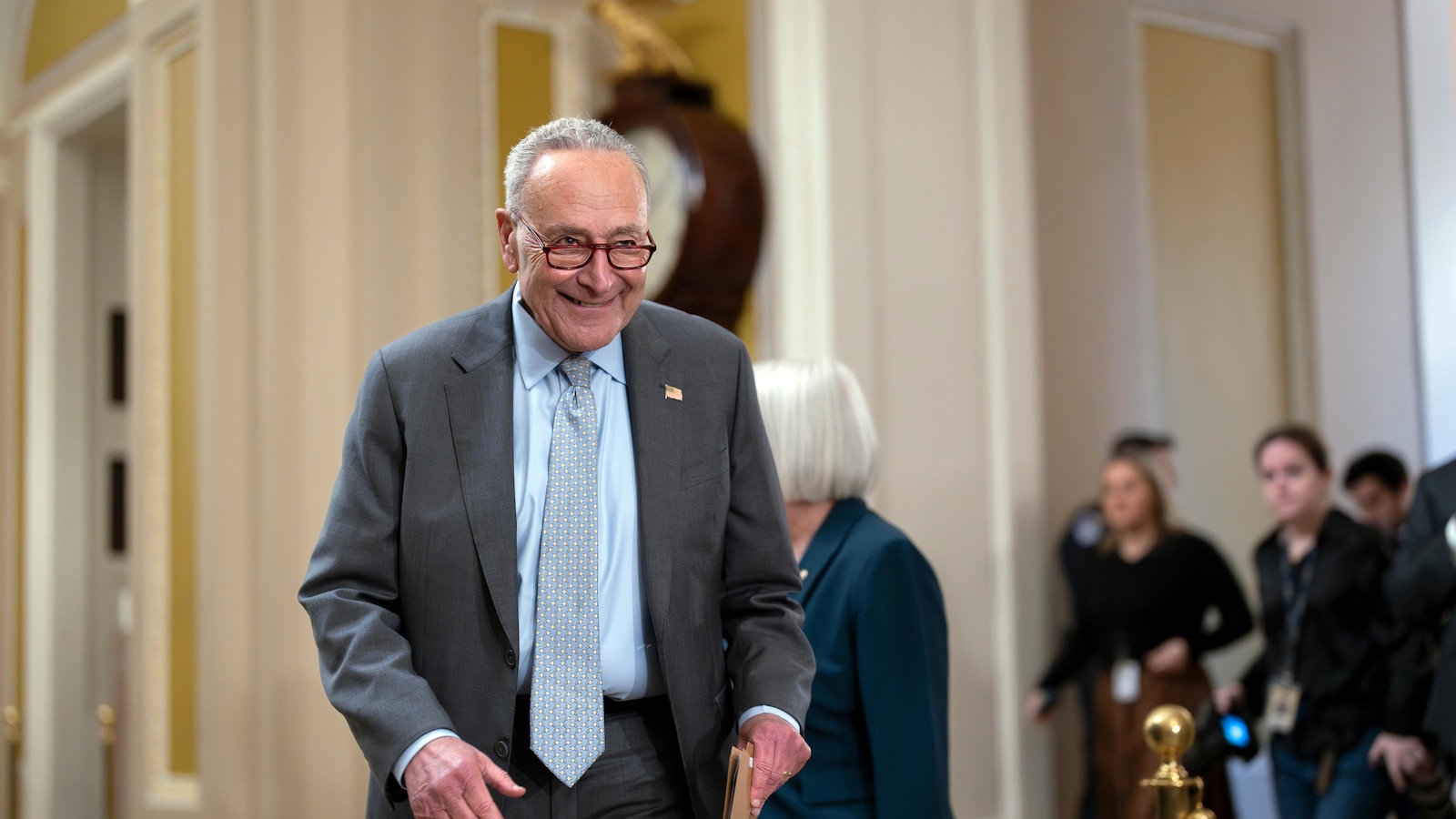House Approves Temporary Funding Bill, Kicking Spending Decisions to After Election
WASHINGTON — The House of Representatives has passed a temporary measure to prevent a government shutdown as the new fiscal year begins next Tuesday, delaying final spending decisions for the next budget year until after the November 5th election.
The stopgap measure, approved Wednesday by a 341-82 vote, generally funds agencies at current levels through December 20th. It includes an additional $231 million to bolster the Secret Service following two assassination attempts against Republican presidential nominee Donald Trump, as well as funding for the presidential transition and other initiatives.
The bill now moves to the Senate for final approval, with Senate Majority Leader Chuck Schumer, D-N.Y., confirming an agreement that ensures swift passage. “This is how things should be done,” Schumer stated, emphasizing a process “without brinkmanship, without delay.”
House Speaker Mike Johnson, R-La., described the measure as doing “only what’s absolutely necessary,” addressing concerns within his own party regarding spending levels. However, some Republicans opposed the bill, forcing House GOP leadership to rely on Democratic votes to pass it through a process requiring at least two-thirds support from voting members. Johnson argued that a government shutdown was the only alternative to this continuing resolution. “It would be political malpractice to shut the government down,” he said, “I think everyone understands that.”
The House floor was largely empty during the debate, as lawmakers in both chambers are eager to return to their home states and districts for campaign season, facilitating the passage of this temporary funding fix. However, more challenging fiscal negotiations await them at the end of the year.
A previous agreement aimed at preventing a federal default and ensuring continued bill payments established a 1% spending increase for defense and nondefense programs next year. The Senate has indicated its intention to surpass this level, while House Republicans have advocated for significant cuts to many nondefense programs and incorporated policy mandates into spending bills that Democrats overwhelmingly oppose. Consequently, reaching a final agreement will be difficult.
The temporary bill will primarily fund the government at current levels, with exceptions such as the Secret Service funding boost. The $231 million allocated to the Secret Service is contingent upon agency compliance with congressional oversight and allows for expedited spending if necessary. “Everybody understands that’s critically important right now,” Johnson said regarding the Secret Service funding.
Trump expressed gratitude to lawmakers for the enhanced Secret Service funding at a campaign event Wednesday. He had previously urged Republicans not to proceed with a spending bill without including a requirement for proof of citizenship during voter registration. That legislation failed in the House last week.
In a recent letter, the Secret Service informed lawmakers that a funding shortfall was not the reason for lapses in Trump’s security when a gunman climbed onto an unsecured roof on July 13th at a rally in Butler, Pennsylvania, and opened fire. However, acting Secret Service Director Ronald Rowe Jr. acknowledged the agency’s “immediate needs” and ongoing dialogue with Congress.
The need for this continuing resolution stems from Congress’s significant delay in finalizing the twelve annual appropriations bills that fund much of the federal government. The House has passed five of these bills, largely along party lines, while the Senate has passed none.
Republicans attribute the impasse to Senate Democrats’ refusal to bring the twelve appropriations bills to the Senate floor for a vote, where they could then be reconciled with the House bills during negotiations. Democrats counter that House Republicans are acting in bad faith, hindering the process by undermining an agreement previously reached by former Speaker Kevin McCarthy with the White House regarding spending caps for the 2024 and 2025 budget years.
Rep. Rosa DeLauro, the top Democratic member of the House Appropriations Committee, declared that her party will accept no less than the 1% increase specified in that agreement. Additionally, if Republicans seek a higher defense spending level, there must be “dollar for dollar parity for nondefense,” she stated. “We know where we have to end up. And it is my hope that this bill will provide the bipartisan momentum needed to get there,” DeLauro said.
The White House urged both chambers to pass the stopgap bill while expressing concern that it does not adequately fund community recovery efforts from natural disasters or provide sufficient funding for healthcare services through the Department of Veterans Affairs. Nonetheless, the administration called for swift passage to “avoid a costly, unnecessary Government shutdown” and ensure ample time for passing the full-year spending package.
Johnson cautioned that he will not support a comprehensive omnibus bill to fund the government when the new extension expires in December. He indicated the possibility of another temporary measure that would allow the new president and Congress to make the final decisions on fiscal year 2025 spending levels. “I have no intention of going back to that terrible tradition,” Johnson stated.

